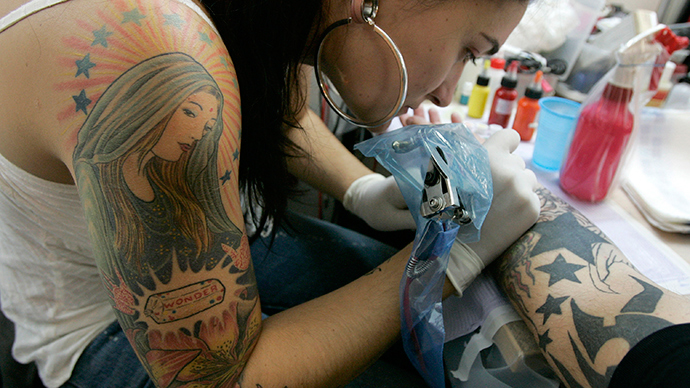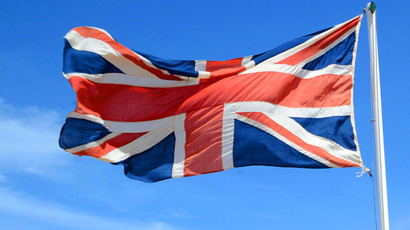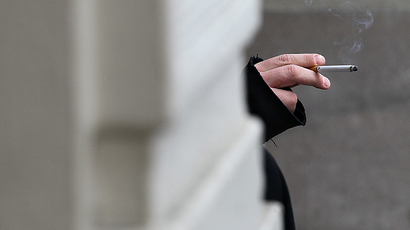No tattoo if you want the job: Law firm warns body art can hurt career prospects

A UK law firm has warned that both employees and students could damage their job prospects if they get inked, ahead of the London Tattoo Convention.
The three-day-long event will showcase 340 international tattoo artists. Law firm Moore Blatch said that candidates applying for positions that involve dealing with people, such as nurses and police officers, could have their job applications disqualified or refused if they admit to having a tattoo. One in five Britons now has a tattoo, according to surveys.
"Tattoos used to be confined to bikers, sailors or artistic individuals seeking to express themselves, but today tattoos are commonplace and attitudes towards them are changing," Katherine Maxwell, partner and head of employment law at solicitors Moore Blatch, told the International Business Times.
"Saying that, we would advise anyone thinking of getting a tattoo to consider carefully how this may affect their current or future job prospects as the law is still ambiguous.
"We would also advise businesses who are considering introducing a new policy which prohibits tattoos to be careful when drawing up their code of conduct. Employers should take into account existing employees with tattoos and also think about whether the tattoo would affect the job, and, if yes, in what way."
Under UK law, employers are currently permitted to refuse to hire someone because they have a tattoo, can ask employees to cover up any visible tattoos while at work, and dismiss an employee for getting a tattoo.
The Metropolitan Police, for example, bans tattoos on the face, neck and hands, as well as any that are "discriminatory, violent or intimidating."
However, there are exceptions. "In cases where the tattoos may have religious significance, for example, employees could find they have a case for being discriminated against by reason of their religion or belief (section 10 Equality Act 2010)," said the law firm.
"Also, elsewhere, legislation states that an employee with at least two years’ continuous service has the right not to be dismissed unfairly, should they get a tattoo against their employer's code of conduct," it added.
Tattoos have become increasingly common - Prime Minister David Cameron’s wife, Samantha, for example, has an image of a dolphin tattooed on her ankle.
A study led by Andrew Timming, of the University of St Andrews in Scotland, showed that inked candidates consistently ranked lower as job candidates, despite being equally qualified as people without tattoos. In a separate study Timming found that many service-sector managers disliked tattoos, especially jobs that involved dealing with customers.
Timmings said visible tattoos were a turn-off for hiring managers. "There were recruiters who had tattoos, who showed me them – they weren't visible on the hand, neck or face – they wouldn't have someone with a visible tattoo on display," said Timming.
The study revealed that if a person with visible tattoos was hired, clients would associate the company with words like "untidy," "repugnant" and "unsavoury."
However, some workplaces are more tattoo-friendly. A prison services manager said that having tattoos made it easier to bond with inmates and firms with a younger clientele were also more open-minded towards tattoos.














